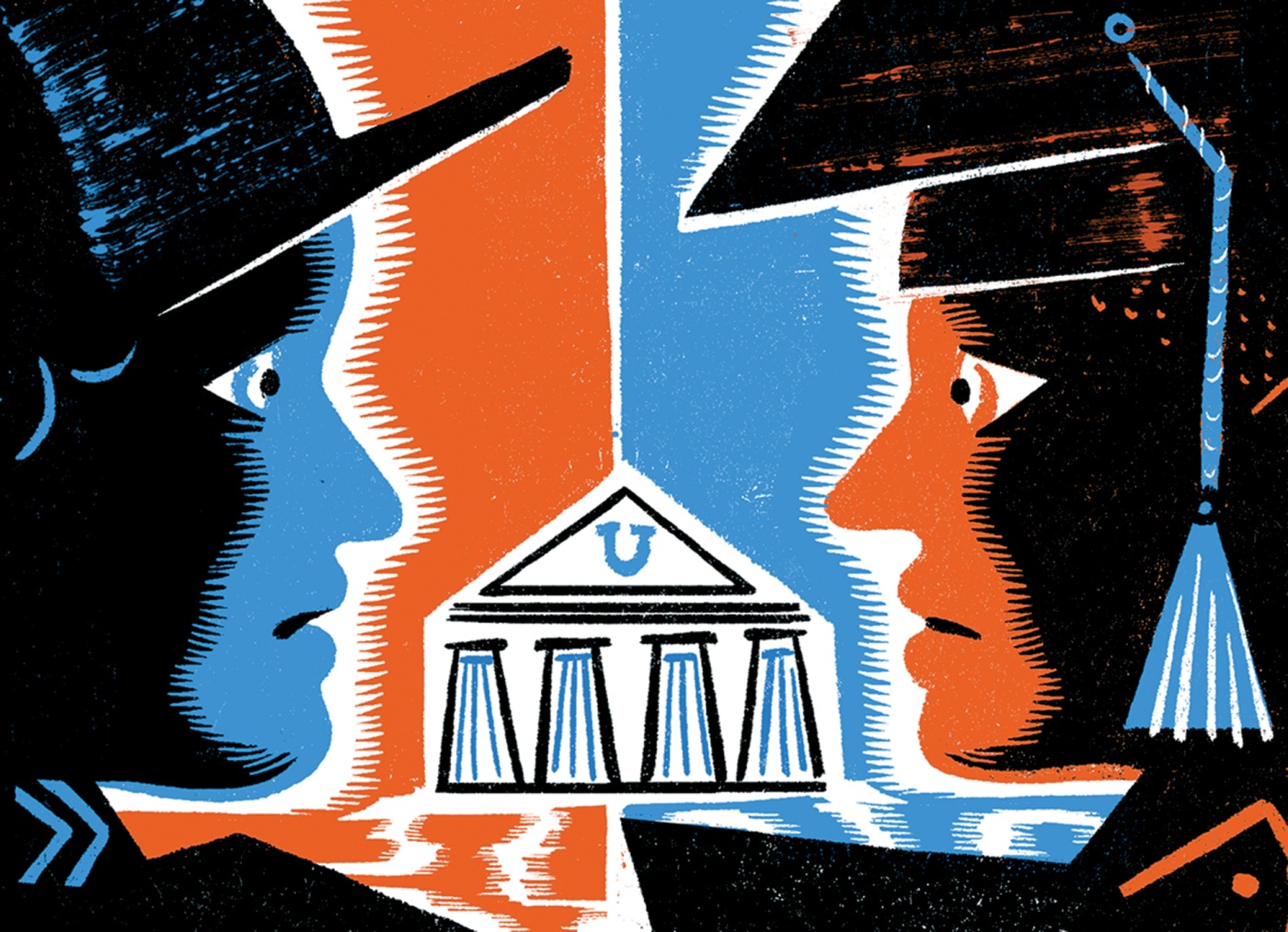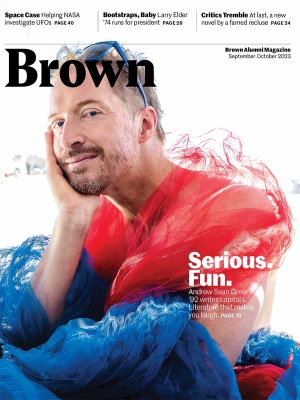When Will Bunch ’81 talks about a “class divide” these days, he means it literally. Through dozens of conversations relayed in his recent book, After the Ivory Tower Falls, he explores how higher education (or lack of it) makes its mark—and finds that whether or not a diploma hangs on the wall, just about everyone is likely to express disappointment, frustration, and resentment during the discussion.
For Bunch, whose family once owned a small business college in Peoria, interest in higher education is in his DNA. But in recent years, according to the Philadelphia Inquirer opinion columnist, the increasingly angry tenor of America’s culture wars (from the George W. Bush era to the rise of the Tea Party to the ascent of Donald Trump) has demonstrated that attitudes toward college and the political divisions in this country go hand in hand. “We’ve seen the polling numbers,” he says, “and we know that college has become the fault line in American politics. If you have a degree, you’re more likely to vote Democratic; if you don’t, you’re more likely to vote Republican. Why is that?”
The book begins by tracing the generational sweeps of our modern university system, starting with the post-WWII G.I. Bill that, among other benefits, offered returning soldiers free college tuition. It next alights on hippies’ tumultuous campuses and moves on to the yuppies and their emphasis on careerism. It’s a wide-ranging journey that also touches upon questions of legacy and meritocracy and how private colleges woo students (infinity pools, rock-climbing walls, gourmet cafeterias).
The crux: In the race to stay competitive, higher education has become less about knowledge and more about the promise of economic success. This often unrealized deal has left graduates to wrestle with shaky futures and a collective $1.7 trillion debt, while those who’ve opted out are faced with the same dismal job prospects and the disdain of the so-called elites. “That turns into the right freaking out about woke corporations and colleges,” Bunch says, “which leads to a distrust of science like vaccines and climate change.”
It’s a problem that’s not going to be solved by yelling at each other or being condescending, Bunch adds. “We need to look at the big picture: We’re letting down our young people when they turn 18.” Erasing some of their debt, as the Biden administration is still attempting, is a start, as are free institutions like Williamson College of the Trades, which Bunch serves up as a potential model for returning to the idea of an education that equips graduates with critical thinking, life competency, and job skills. “College should be a public good, but we screwed it up,” he says. “I’m hopeful that as the conversation continues, we swing the pendulum back.”





